Souad Massi is touring Europe with her new album for the rest of the year. Check her schedule at souadmassi.com for tour dates and tickets. Her sold-out Montpellier concert was coproduced by Caravan Arabesques, a project of Unison out of Montpellier which supports Arab cultural arts performances and education throughout the region and beyond.
Jordan Elgrably
Souad Massi is a free spirit and a wildflower. Like a Forget-me-not or a Dame’s Rocket, she thrives in both hot and cool climates, high up in mountains at the height of her singing career or in the low flatlands, during Covid. Like a botanical chameleon she adapts to sun or shade, and the metaphor isn’t arbitrary; if you look at the cover of her new, post-Covid album, Sequana, there are daisies in Souad’s eyes.
“I love all wildflowers,” she says during our conversation just before a concert she gave in Montpellier while on tour. “I think people are a little mean to these wildflowers and plants. They pull them out, like weeds. And what I love about these plants is that they grow back every time. And for me, it’s a symbol of resistance.”
A symbol of strength for millions of fans and followers, Massi has fought the patriarchy and the male-dominated music scene throughout her career as a singer-songerwriter. She’s been a vocal artist and composer for more than half her life, from her beginnings in Algeria to her international career based in Paris, where she’s raising two daughters with her husband and manager, Mohammed Abdel. She’s also been a resistance fighter for women, for justice, and she’s not shy about saying it, for universal love.
During the pandemic, Massi says, “At first I was like everyone else, very anxious.” She nourished herself by reading a lot, returning to one of her favorite texts, Khalil Gibran’s The Prophet, poetry that she says imparts “universal love that nourishes me.” She also listened to a great deal of classical music and jazz and, “It may sound weird, but I listened to a lot of nature sounds, water, and lots of birds…in nature I find a little glimmer of hope.”
Sequana is her first album since Oumniya in 2019. Its 11 songs range from the powerful balads “Dessine-moi un pays” and “Dib El Raba” to the beautiful and hopeful “Ch’ta.” The album, for Massi, is about “regeneration.”
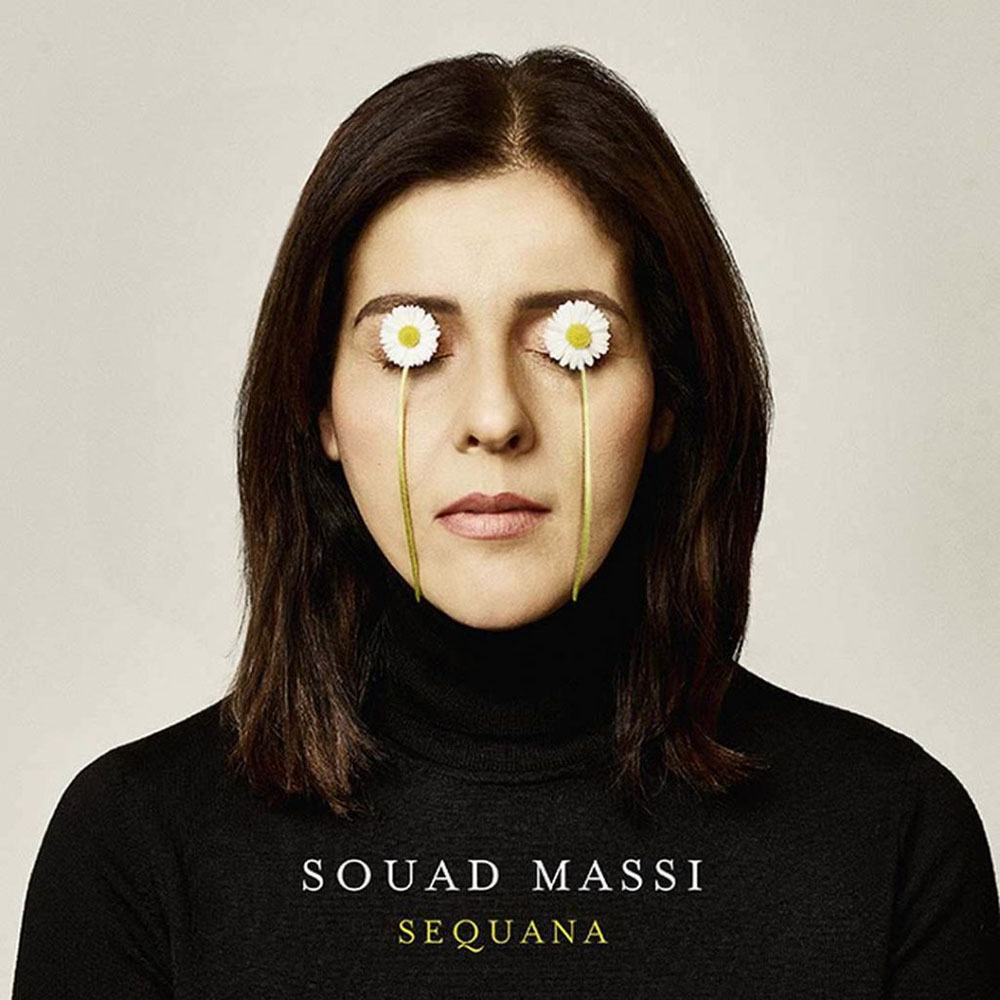
“Sequana is the Gallic goddess of healing. And there’s a place along the Seine, where people, in the past, went to pray and to use the water to heal themselves. And what struck me [reading about it] was the doctors who went there, would bathe their tools in the water to do surgery, especially eye surgery.”
Without exaggeration, the wildflowers of Sequana represent Souad Massi’s lifelong desire for freedom. In her song “Dessine-moi un pays” (“Draw me a country”), she sings in Arabic for truth and freedom, talking about the harga, the illicit journey braved by North Africans crossing the sea in search of a better life. Massi sings, “The blood of freedom runs in my veins.” It’s a theme that you find throughout her work.
“I am a person who does not like injustice and who has suffered injustice on different scales and at all ages, especially towards women, for example, or towards certain ethnic groups. I am of Kabyle origin; I have seen the racism towards the Amazigh, for example, in Algeria, or towards black people — I had friends from Africa who came to study in Algeria and I felt this racism.
“We don’t talk about it much back home, but there are a lot of problems, and these are things that revolted me. In fact, I was raised in a family that loves music and hates injustice. It’s in the blood.”
British music producer and guitarist Justin Adams, who worked with Massi in Paris while recording her album last year, had long been a fan. Adams, who has performed with such diverse artists as Sinead O’Connor and Rachid Taha, happened to catch Massi’s recent performance at London’s Barbican where, he says, “It was great to see the way Souad connected with the audience and who the audience was, people who are sort of third culture individuals, you know — if you’re born in one country, and your parents might be from two different cultures, and then you might move to another country, so you’ve already got this kind of [broader] cultural awareness, or consciousness. People like that kick back against narrow minded nationalism. Souad speaks to people who want to value their cultures and who might not come from a strictly white western culture can kind of dominate in the digital world.
“I think Souad has had such a huge impact as a woman from a Muslim country, just really standing up and being her own individual voice. She’s been a role model for women all over and I love the way she’s refused to be limited by her background. She is so obviously deeply involved in culture, musical culture and otherwise, but also, she’s completely open and knowledgeable about all forms of music, including American country and rock. She’s got a kind of broad take, which is just about her self expression and songwriting.
“I admire her as an artist who has one foot in a Muslim country,” Adams continues, “and in a culture from the Maghreb, and in an Amazigh tradition, and yet who on the other hand, confidently takes on a Trent Reznor song with a reference to the Johnny Cash version, or who can quote, Latin American rhythms. It’s a global thing, which is just so many people’s reality these days.”
WORKING WITH A MASTER
With Souad Massi often being the only woman — and the only Arab woman — in the recording studio and on stage, the potential for miscomprehension and discord is obviously a concern, but Adams’ experience was exemplary.
Working with her was easy, he says; they got along famously. “And she’s got a wonderful kind of calm confidence. I think her songwriting comes from a very genuine, soulful place, and she’s a natural musician. I particularly love the way that she sort of steers her way through what is a pretty macho world. She’s got this kind of gentle, slightly humorous way of just going, okay — I’m surrounded by a lot of [dominant] males; not to overstate it, but there’s a colonial kind of racist thing going on in the background. And Souad just calmly pushes through that. She is absolutely her own person with her own vision.”
DOING IT HER WAY
As legend would have it, Massi fled Algeria in the ‘90s during the country’s violent decade, but she wants to set the record straight during this conversation. She did not leave for Paris in 1999 because of death threats.
“It would be a lie to tell you that,” she says. “I did leave Algeria but at the time I was working in an engineering consulting firm. I had just graduated. I’m an urban planner by training. I was very happy to earn my first salary. It wasn’t much, but then [as a performer] I was invited to a festival in Paris, Women of Algeria, which took place at the Cabaret Sauvage, and it went very well, and I stayed afterwards.”
She didn’t exile herself for fear of being snuffed out in Algeria, but because she felt less like a fish out of water in Paris with her eclectic musical choices. Souad Massi was an innovator early on, melding her native raï and chaabi traditions with American rock and folk, and singing in Arabic, Kabyl and French. For a while she sang with the pioneering Algerian hardrock group Atakor. And yet despite having already achieved some success in Algeria, she says, “I still felt like an extraterrestrial with the style that I made my own, mixing Algerian and American folk and rock, with world music elements.”
Her Cabaret Savage performances didn’t go unnoticed and she soon signed a contract with Universal Music’s Island-Mercury. Two years later, in 2001, she issued her first album, Raoui (storyteller), which was a hit with the critics.
One wonders whether Souad Massi feels at home in France, in view of the frequent tensions that are exacerbated by the country’s right-wing, anti-immigrant demagogues, or does she feel like a nomad?
The artist pauses thoughtfully before slowly replying. “I’ll tell you: both. I feel a little bit nomadic because I travel a lot and it’s wonderful to be able to travel. And at the same time, I feel at home in the hearts of people who are good. I don’t know if this speaks to you.”
I tell her that what she’s saying reminds me of the Palestinian poet Mahmoud Darwish’s line about how “People’s hearts are their passport.”
Massi nods, “I think we are at home when we are bien entouré, in good company. I feel more at home when I am with beautiful people.”
MASSI AS A SYMBOL OF FORTITUDE
Souad Massi the artist is versatile and multiform, at once Kabyle, Algerian, Arab, woman, mother, artist, activist. Her diversity is her wealth, but one wonders about the challenges of managing a complex identity. Is it ever a burden?
“It is a wealth, it is a treasure,” she replies. “Is it a burden? No, on the contrary, it is a gift, which allows us to evolve, to have a certain consciousness to be able to communicate with other people. I think, in relation to young people, to young girls, for example, and here I’m talking about the Maghreb or Middle East, we become in spite of ourselves a symbol, and we must always try to live up to our potential and not to disappoint. It is a responsibility, I would say.”
Since 2005, Massi has worked with the UN as an ambassador for women in Africa. It’s a cause to which she remains completely committed today. “It was a really beautiful mission for me to be the sponsor of the microcredit project that gave opportunities to women in Africa to set up their small projects. And at the moment, I am the sponsor of an association called The Fund for Women in the Mediterranean that you can see on the internet. It is a magnificent association that trains associations across the Mediterranean, everywhere, to train women to raise awareness against violence against children and women, to make them more independent in several areas.”
As much as Massi would like to return home to Algeria to spend time with her family, she remains wary and sad — sad “that I cannot go home…[because] I was one of the first artists who supported the hirak protests. And as well because of some of [the lyrics of] my songs.”
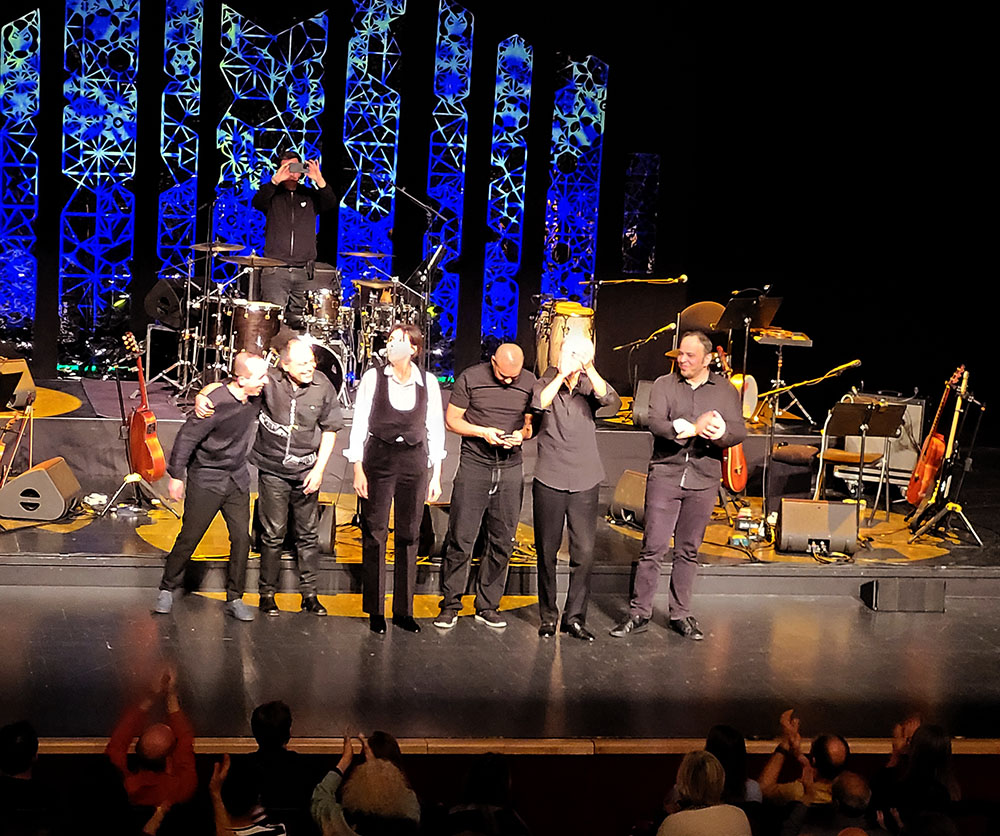
Massi has a massive fan base across the Arab world and Europe, and many admirers in the United States, but unfortunately, she hasn’t toured the US as much as she would like.
“My reluctance to go touring in the United States,” she explains, “is due to the fact that I don’t like the way we’re questioned. I don’t like the way we are equated with terrorists or terrorism. This is something that really revolts me, I who suffered from fundamentalism in Algeria, I find it really unfair. And unfortunately, the rise of racism and xenophobia is a phenomenon that has evolved at the same time in Europe. I have the impression that it is as if there is a general roadmap: every time there is an election, an enemy must be created. And the enemy is the other, the one who does not speak the same language as us. And that can become very dangerous.”
Massi is the sort of artist you’d like to invite over for dinner, not only because you know she’d get along with your friends, but because she has a thoroughly calming effect on those around her. Even as she performed live on stage at Montpellier’s Opéra, rocking a dozen songs with her quintet of master musicians, Massi conveyed calm, beauty and majesty in every composition. She sang an homage to freedom covering Johnny Cash and among the songs in her repertoire was a number dedicated to the Iranian women risking their lives for the “Woman Life Freedom” movement. At times Massi sang with a mesmerizing chant like a gnawa singer, mixing a mystical vibe with a rock rhythm, channeling a bit of Rachid Taha (bless his ghost). Massi’s performance felt authentic and flawless throughout.
The next time I come across wildflowers on my walks around the city and through the nearby countryside, I’ll be thinking of her.



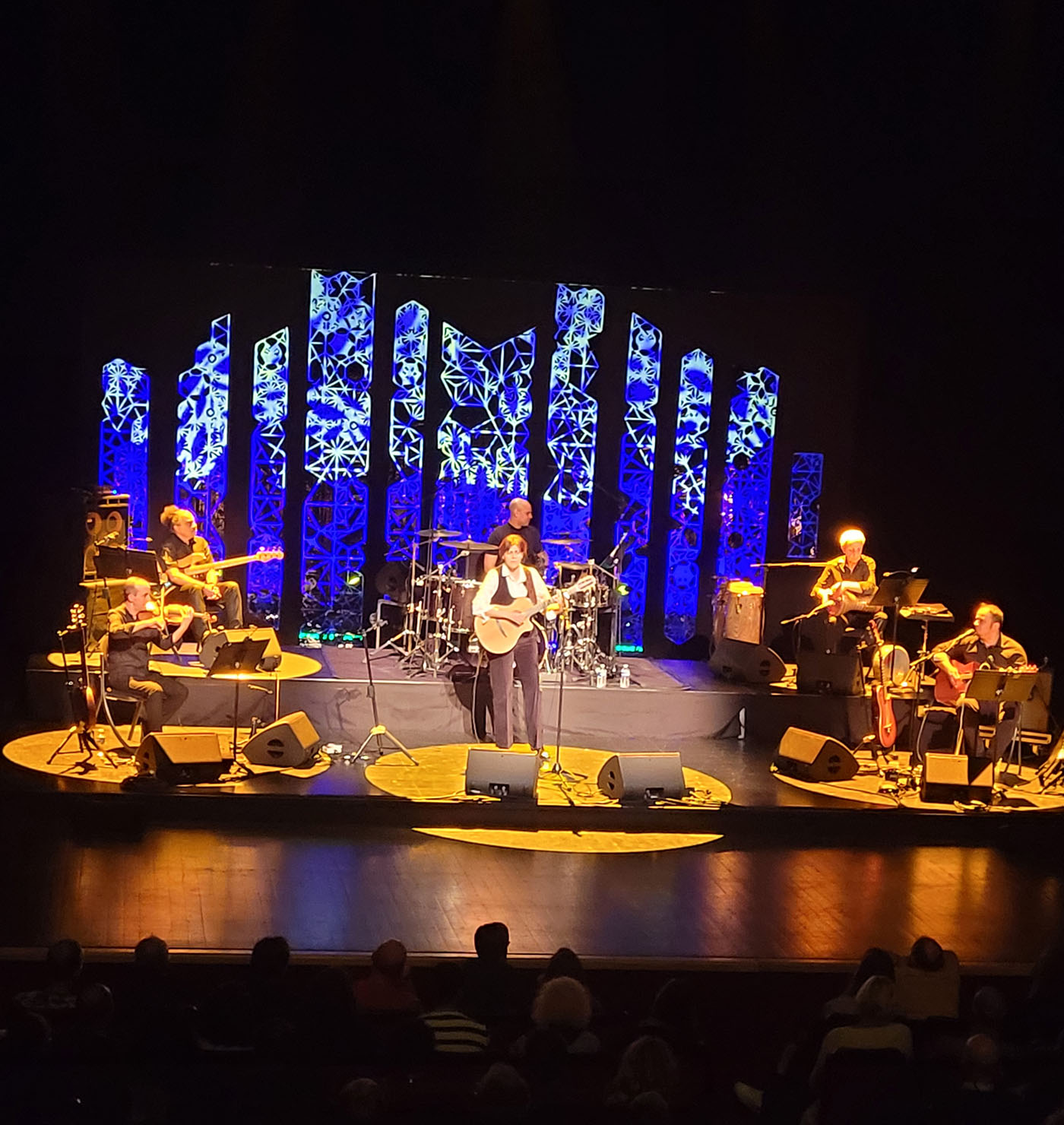
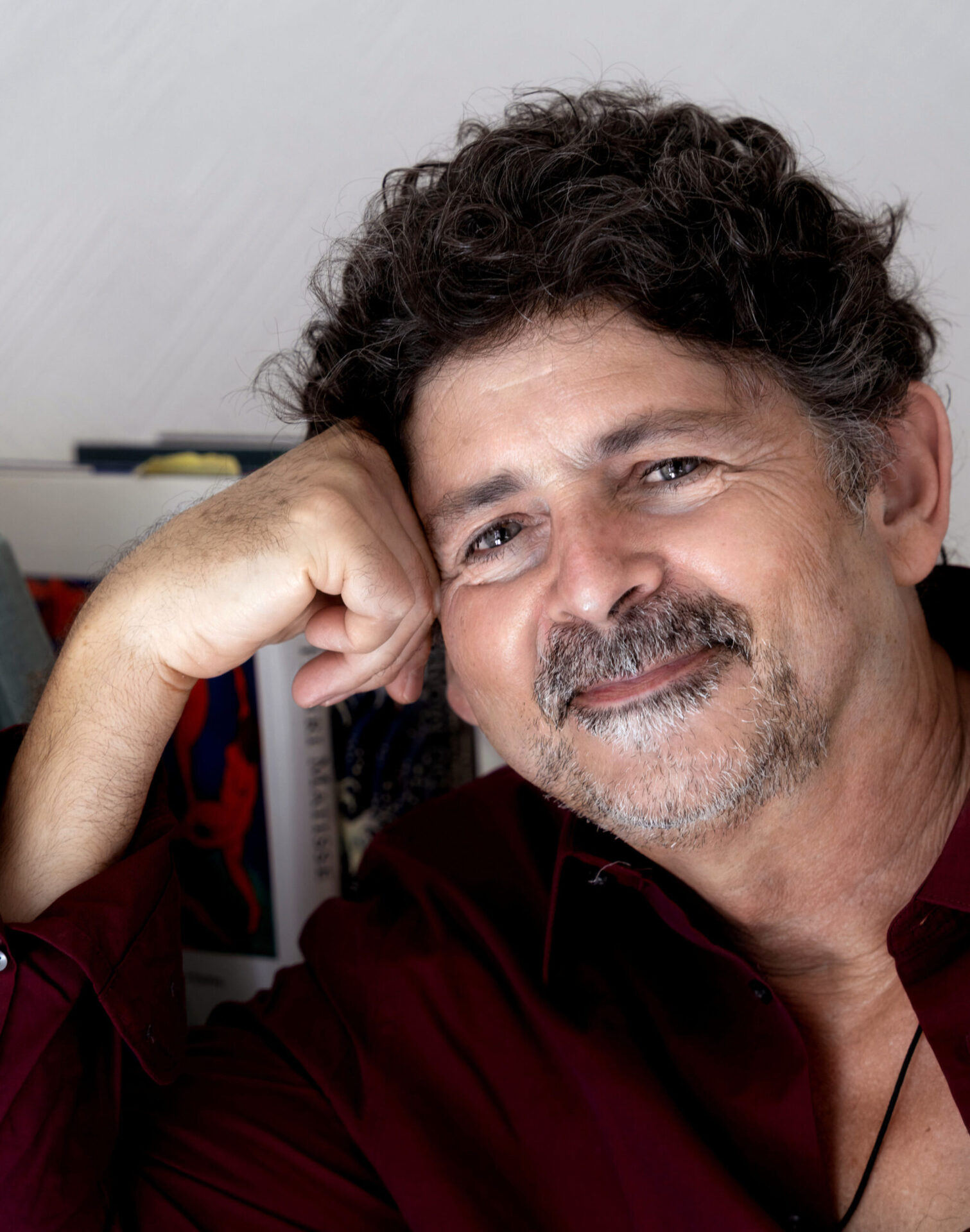








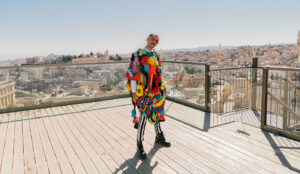

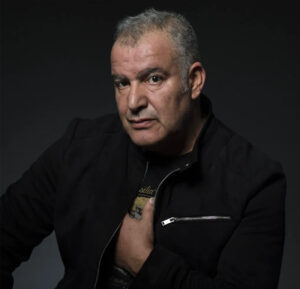

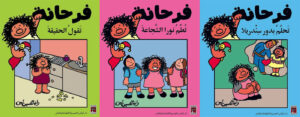
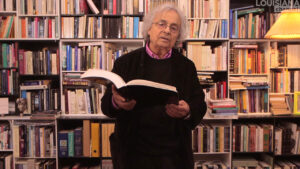

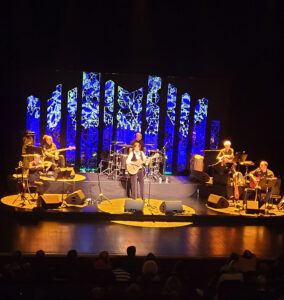
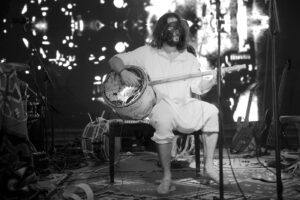
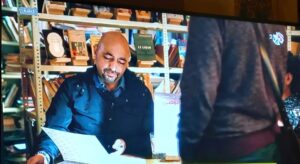
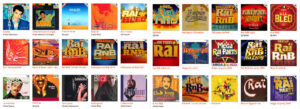

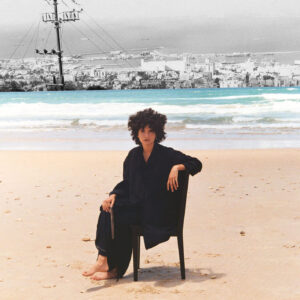
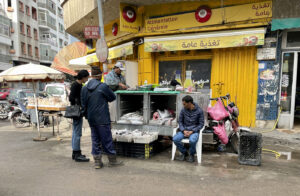

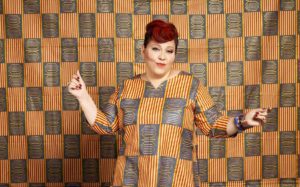







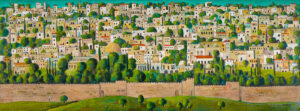
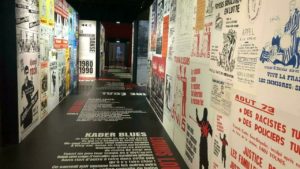




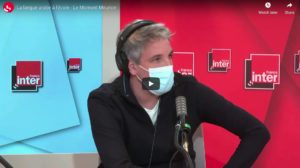

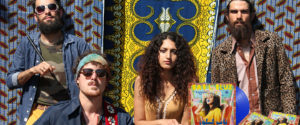
What a great singer. The quality of her voice is such that it is enough for her to accompany herself on the guitar.